Another Humpback Whale Washes Ashore in New Jersey
[Photos in Article by Tony Costa and Save the Dolphins and Whales NJ]
The latest casualty adds to the growing toll on East Coast marine life, prompting concerns over ship collisions and fishing nets.
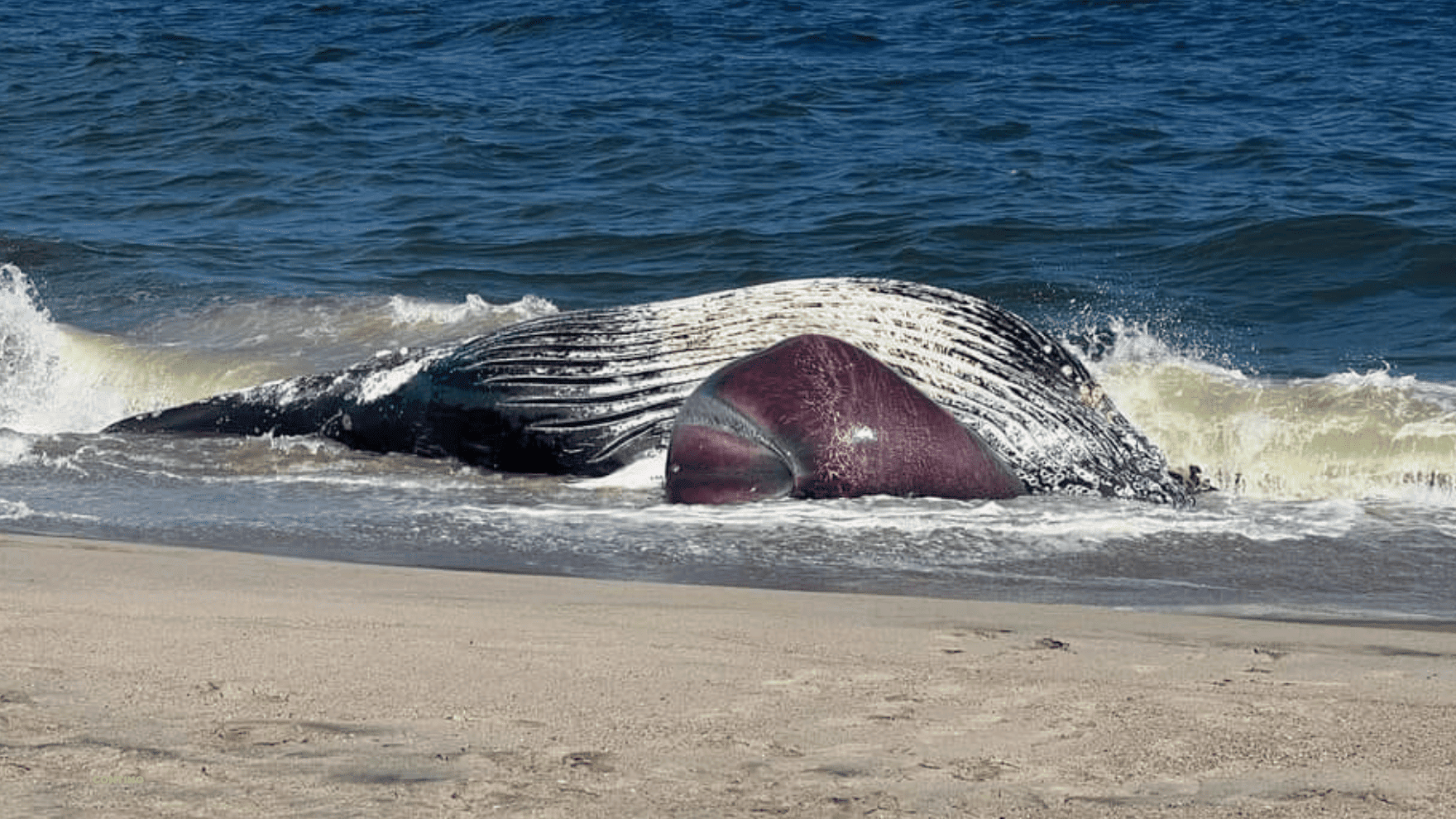
Another Humpback Whale Washes Ashore in New Jersey
In the wake of an ongoing and concerning phenomenon, a deceased humpback whale washed ashore on the New Jersey coast Saturday night, reigniting worries over the unusual mortality event that has plagued marine life along the East Coast since 2016.
This marks the latest in a series of hundreds of fatalities that scientists attribute in part to ship collisions and fishing net entanglements.
The deceased marine giant, discovered in Long Branch–approximately 30 miles south of Manhattan–became the ninth humpback whale to wash up on New Jersey’s shores this year.
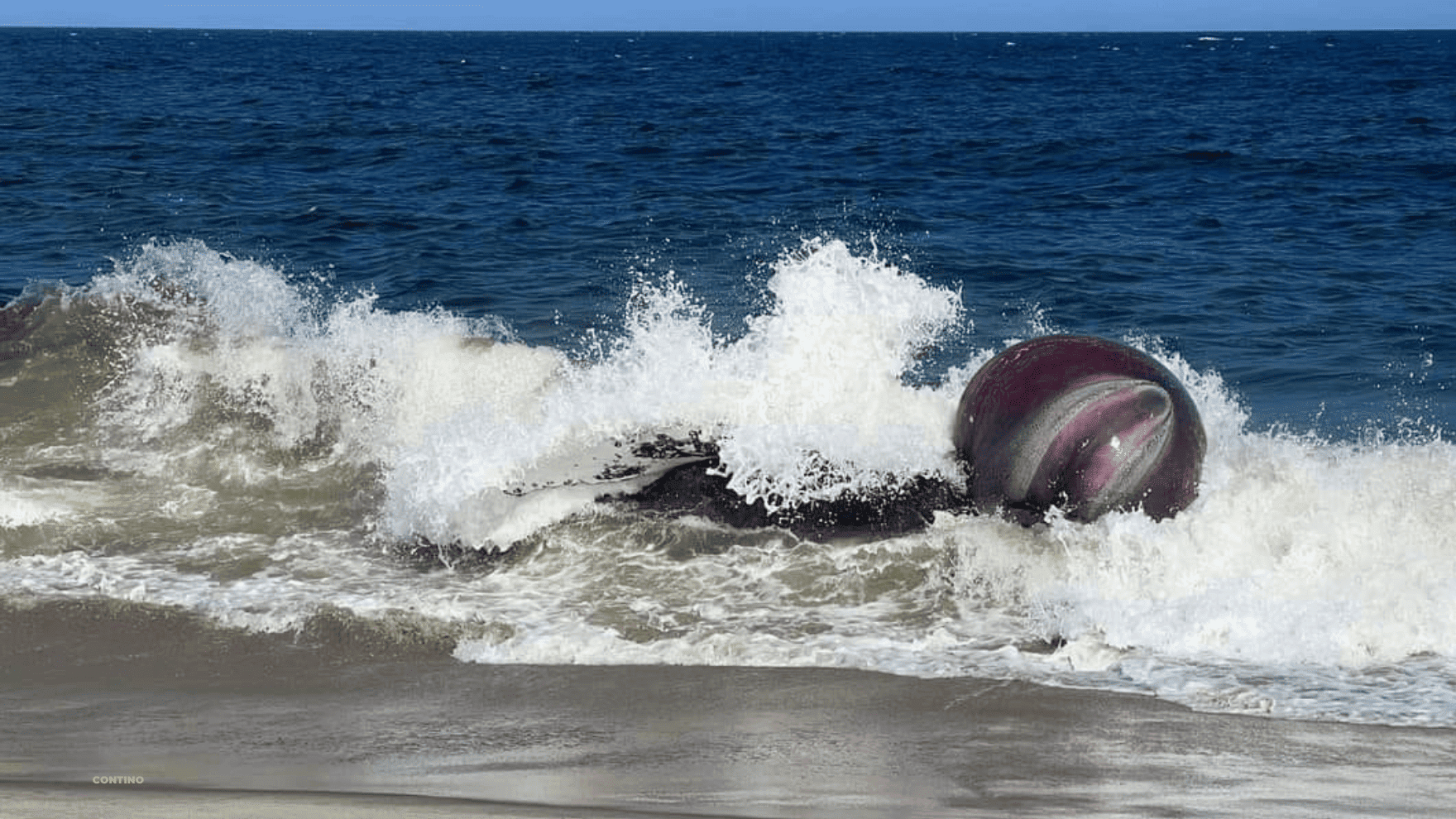
Local residents were the first to spot the mammal around 5 p.m. on Saturday, and it remained on the shore as dawn broke on Sunday.
The appearance of the whale surprised among onlookers, prompting authorities to cordon off a section of the beach surrounding the carcass.
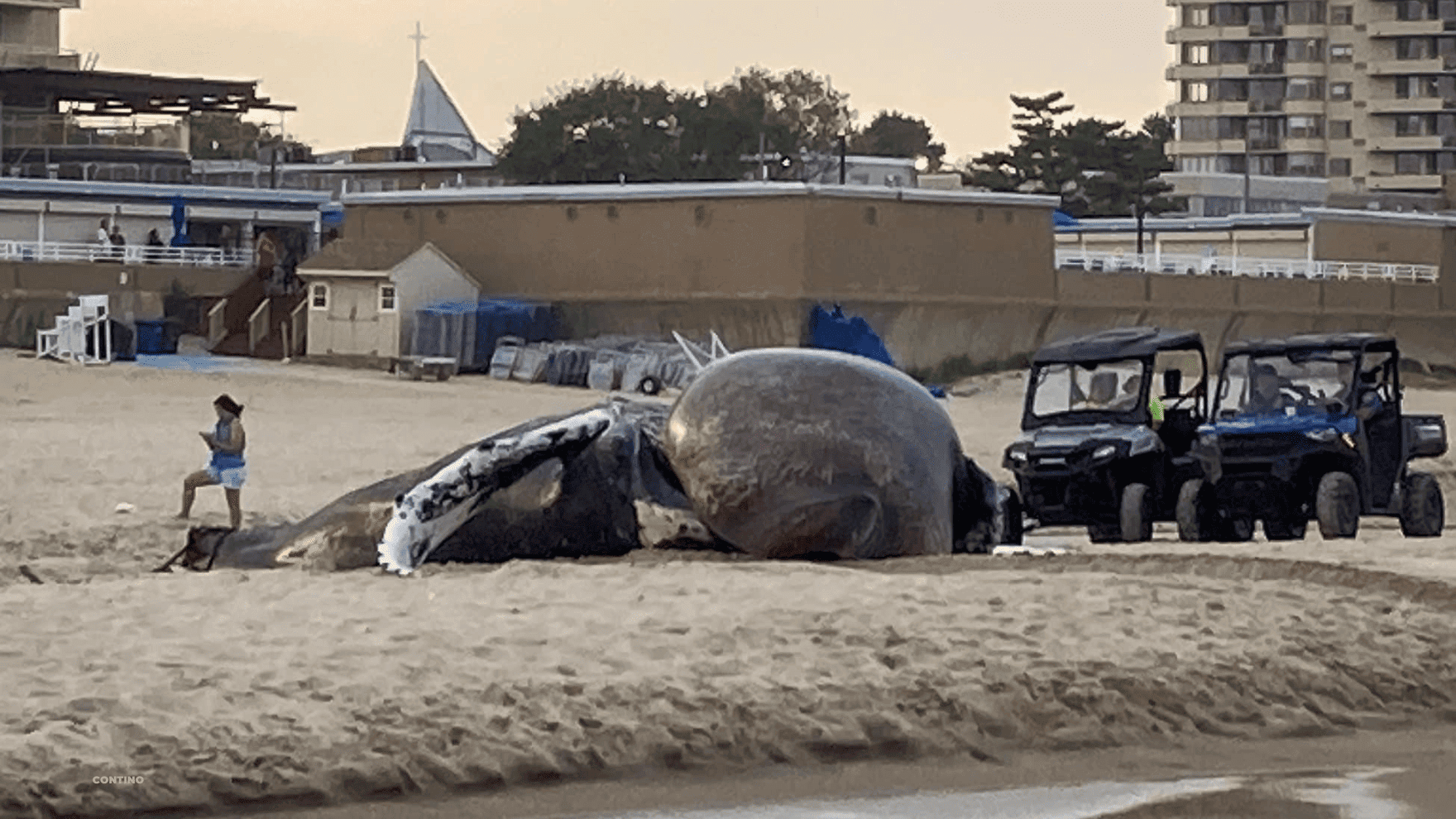
This meticulous examination could provide vital insights into the factors contributing to the rising number of marine deaths.
Whale fatalities have surged in recent months, with New Jersey in particular experiencing a disturbing trend.
Since December 1, 2022, at least 11 documented cases of humpback whale strandings have occurred off the state’s coastline.
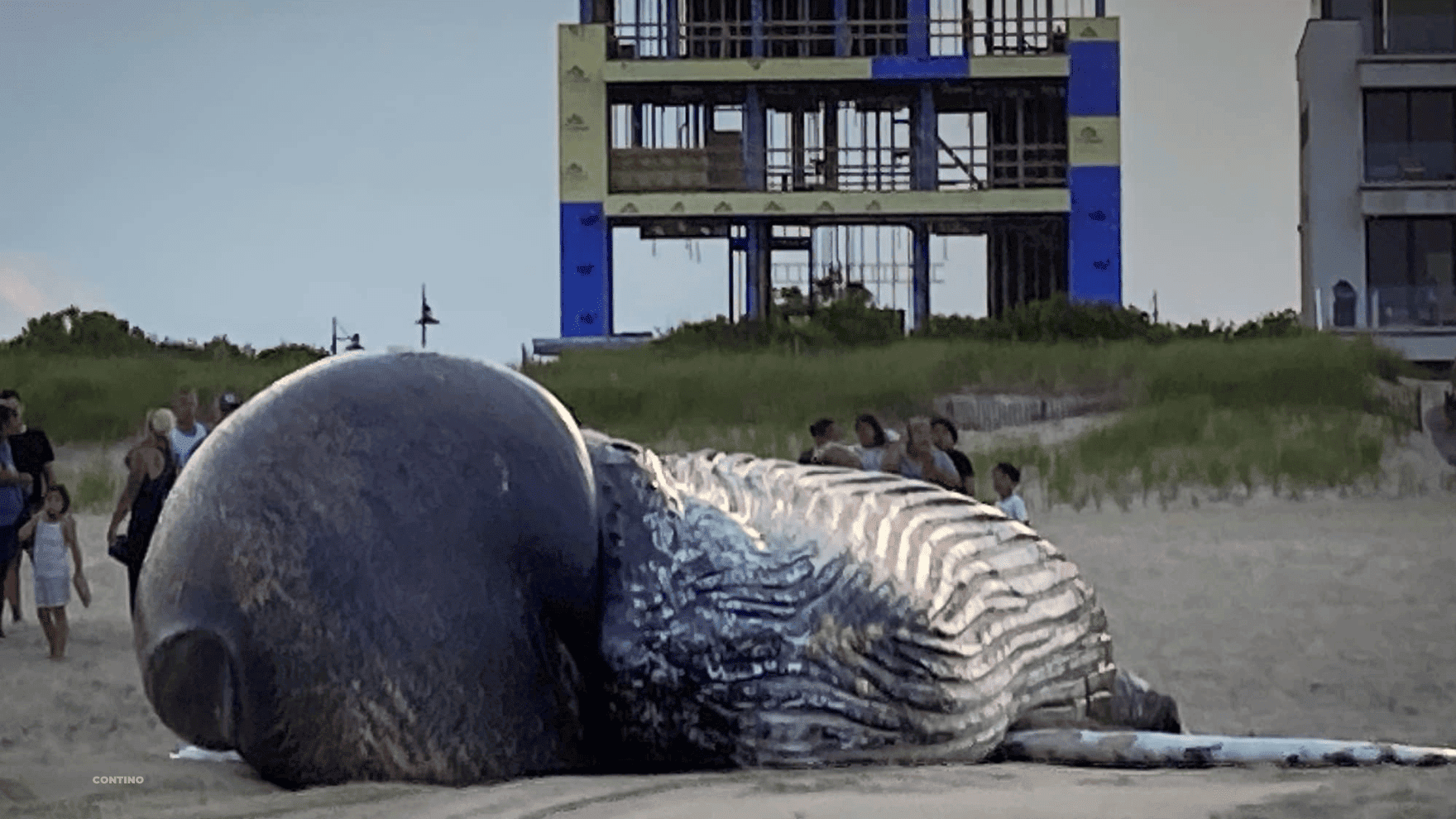
Preliminary findings from the National Oceanic and Atmospheric Administration (NOAA) suggested that the 28-foot-long whale died due to blunt and sharp force trauma consistent with a vessel strike.
The gravity of the situation is underscored by the statistics released by NOAA, indicating that 29 humpback whales have become stranded along the East Coast this year as of Friday. Among coastal states, New Jersey holds the unfortunate distinction of recording the highest number, with seven cases. Virginia, New York, and Massachusetts have each reported six strandings by Friday.
As authorities and scientists work collaboratively to figure out what’s behind this devastating phenomenon, it is becoming increasingly evident that concerted efforts are needed to address ship collisions, fishing gear entanglements, and other potential contributing factors.
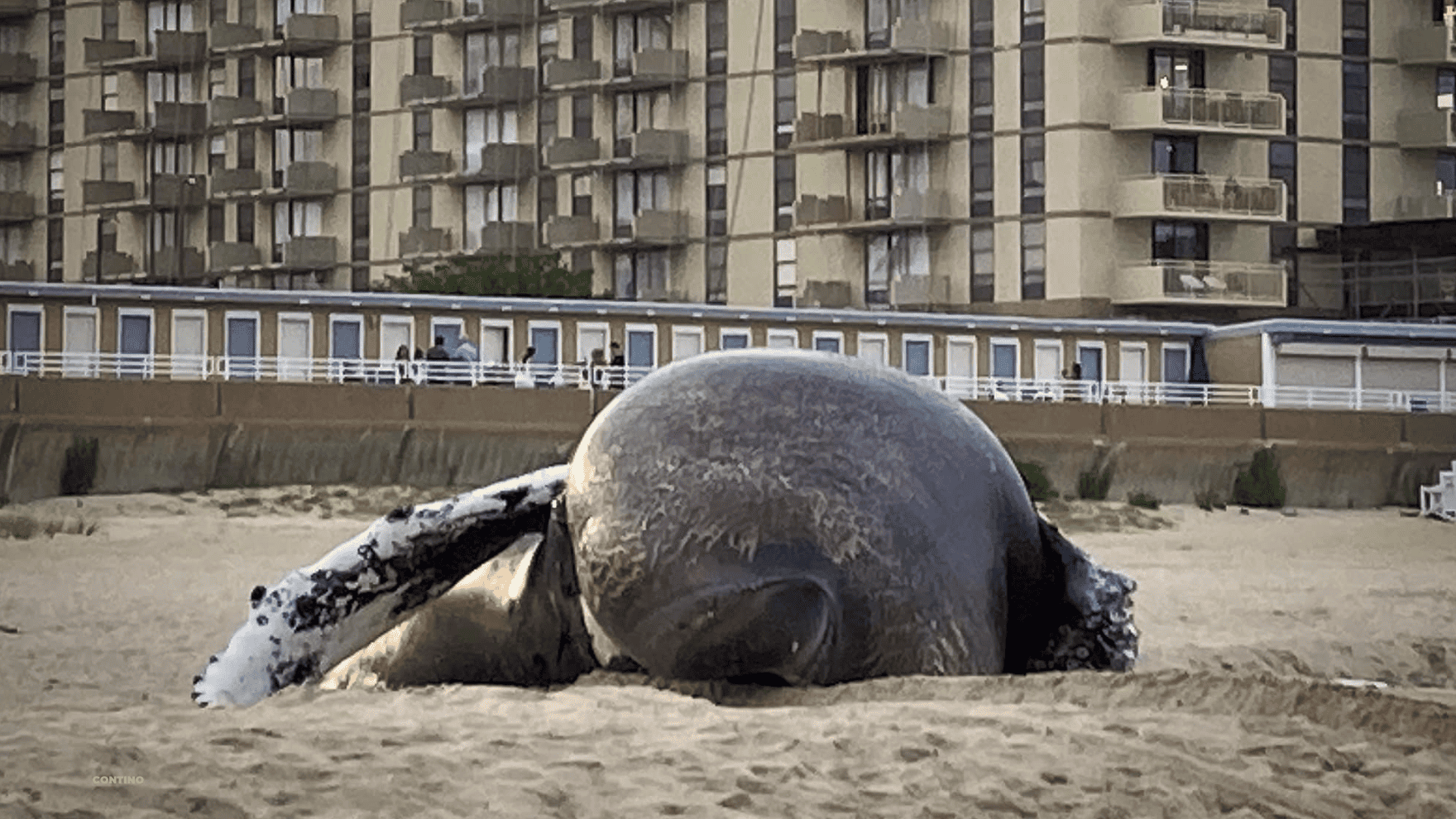
Many New Jersey residents believe that these deaths have something to do with the work being done to prepare the ocean floor for the new wind turbines.
Some believe that the radar being used to ping the bottle is confusing the whales causing them to become distressed.
At this time there is no physical proof that the work being done is causing these issues in the whales.
The whale as of Sunday late afternoon was still sitting on the beach as the city and the Marine Mammal Stranding Center come up with a plan to remove the body.
The marine ecosystem along the East Coast is facing a critical juncture, demanding a comprehensive strategy to safeguard its diverse and essential inhabitants.
